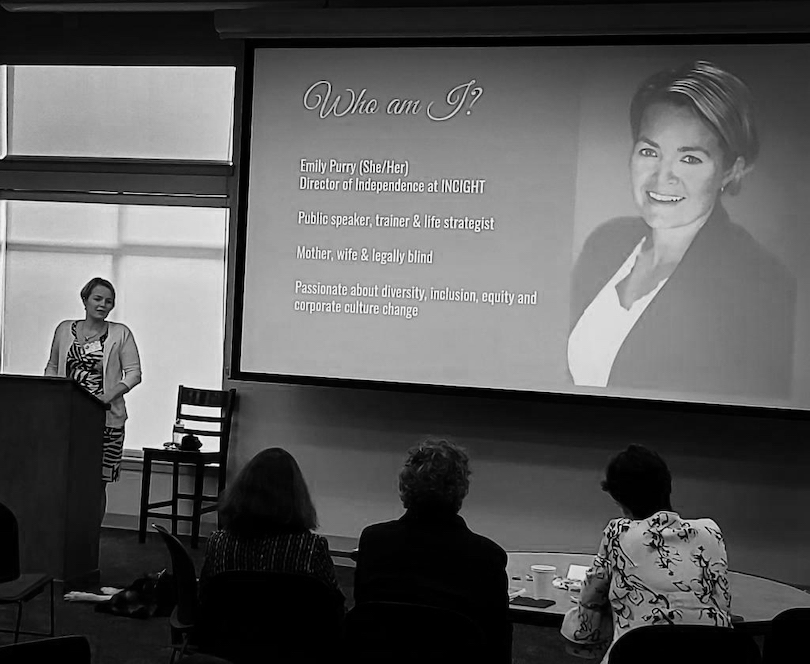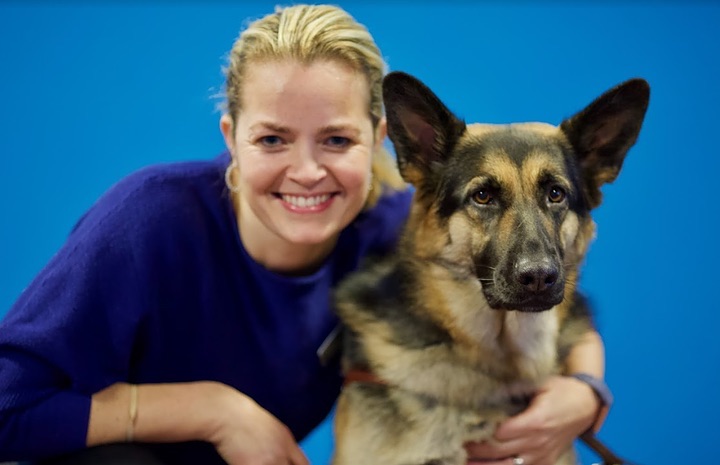Brand Story – Activate wants to broaden the spectrum and destigmatize what inclusion really means. It starts with a conversation.
The equity and inclusion conversation has grown, spilling from lunch rooms to boardrooms to courtrooms. However, those vital discussions around gender, race and LGBTQ tend to overlook or, at best, haphazardly tack on a crucial piece of the spectrum that represents 1.8 billion people worldwide: disability.
One organization in Portland has set out to fix what it deems a crisis of silence: a lack of normalized conversation around disability. Activate trains and advises organizations on how to actualize the entire spectrum of inclusion, moving past corporate messaging to action. The program belongs to INCIGHT, a nonprofit working to unlock the potential of people by serving those living with barriers, disabilities or vulnerabilities, namely by facilitating employment, education and independence.
“We saw that everything we were doing from the outside to help people get hired wasn’t enough. We needed to change the inside of organizations too, so that they understand disability. And that’s what Activate does,” explains Emily Purry, Activate Program Director and speaker. “I’m a hard worker and I’m legally blind, so I was able to give voice to that.”

The core problem begins early on. When children pass someone with a disability, they react with questions: “Why is he in a wheelchair? Why does she have a walking stick?” Oftentimes, their parents shut down this curiosity, reminding them that it is rude to stare or inappropriate to ask – clouding the subject in shame and stunting our understanding. We grow into adults who pretend not to see disability, without even the language to broach it.
For that reason, Purry kicks off her trainings with “6-year-old questions,” giving attendees the permission to ask any and all questions about disability, free of judgement.
“Leaders of companies don’t have the space to be vulnerable and say, ‘I don’t know anything about disability,’ or ‘I have nobody of color in my life,” she adds. “The root of the problem is that people don’t know how to have the conversations or that it’s okay to have them. It’s not just inequality or inequity but complete exclusion from the conversation, and that’s really hard.”
Activate’s speakers offer courses that tackle bias from multiple angles: Disability Justice, The Intersection of Racial Equity & Disability, Service Animals in the Workplace, White Fragility, The Silence of Stigma and beyond.
The nonprofit believes that, when it comes to disability, education and training are the places to start, given that the majority of people simply lack the foundation to begin engaging more deeply with the topic.
“What I’m telling people isn’t rocket science, but it’s stuff they’ve never heard before and that’s because they’ve never had the chance to ask the questions,” says Purry, “Like, ‘What do I do if a blind person sitting across the desk from me can’t read something.’ Well, what would you do if anyone sitting across from you couldn’t read something?”
While that might sound obvious, those living with a disability are often met with uncertainty and discomfort, exposing the progress left to be made.
 Emily Purry
Emily Purry
With organizations, big and small, Activate generally begins with Disability Justice 101. All workshops are tailored to the audience. For example, a construction company and a financial firm receive content that reflects their unique work environments.
In addition to trainings, the program helps organizations work within their budgets to develop multi-year strategies aimed at achieving an environment of true inclusion. This begins with a trauma-informed accessibility walk-through: “The number one phrase I get is, “Well, we don’t have anyone in a wheelchair accessing that area,’” Purry recalls. “My answer is, ‘There’s probably a reason for that.’”
After evaluating the space, the team provides recommendations for changes that demand varying degrees of effort. These consulting roles operate on an ad hoc basis or span years.
In the business world, decisions generally hinge on cost. As equity and inclusion gain traction, companies have begun allocating the necessary funding. Disability, however, still sees relatively little of that allotment, surprising for opportunity-minded professionals concerned with profitability.
“There’s a strong business case for being an accessible business. One billion and eight hundred million people experience disability in the world,” Purry explains. “Between them, family and loved ones, that’s eight-trillion-dollars’ worth of buying power that you’re missing out on if you’re not including people with disabilities in product design, development and marketing.”
Not to mention the untapped pool of talent barred from the job market. Activate understands that this is not due to a lack of jobs or skills, but of attitudes and working environments that incorporate those with disabilities. Companies that take the step to create an inclusive environment reap the rewards of an enhanced, diverse workforce.
Once work culture integrates all people into the system, upstream benefits can emerge: Children with disabilities will assume that the career paths of their peers belong to them too. Society will hold high expectations for all youth – pushing them to set goals, go to college and pursue their dreams. According to Activate, this entirely new reality begins with conversation.
Organizations interested in activating their culture can go to ActivateToday.org
Brand stories are paid content articles that allow Oregon Business advertisers to share news about their organizations and engage with readers on business and public policy issues. The stories are produced in house by the Oregon Business marketing department. For more information, contact associate publisher Courtney Kutzman.





